Renovating
Is it Worth Getting a Boiler Upgrade?
When to upgrade, what to pick and ways to be efficient – read on for expert boiler advice
The rising price of energy is a concern for many of us as we head into winter, and ensuring we have an efficient heating system in our homes has never been more important, both to save money and reduce carbon emissions. But how do you know when your existing boiler needs an upgrade and what options are available?
Here, we look at the government’s Boiler Upgrade Scheme, designed to help homeowners afford the upfront costs of installing a low carbon heating system, such as a heat pump, and ask three experts for advice on improving the efficiency of an existing boiler and which alternative to choose if it’s time for an upgrade.
Professional advice from: Paul Honeyman of Vaillant Group; Kit Knowles of Ecospheric, experts in Passivhaus and zero energy design; energy-efficiency expert David Hilton of Heat And Energy
Here, we look at the government’s Boiler Upgrade Scheme, designed to help homeowners afford the upfront costs of installing a low carbon heating system, such as a heat pump, and ask three experts for advice on improving the efficiency of an existing boiler and which alternative to choose if it’s time for an upgrade.
Professional advice from: Paul Honeyman of Vaillant Group; Kit Knowles of Ecospheric, experts in Passivhaus and zero energy design; energy-efficiency expert David Hilton of Heat And Energy
Should I replace an old boiler?
If the boiler is old, it makes sense to replace it. Since 2005, it has become mandatory to install condensing boilers, because they reduce carbon emissions and are up to 99% efficient, while non-condensing boilers are only up to 78% efficient.
“If you have an older, non-condensing boiler, replacing it with a modern, condensing model will make huge savings in the long term. They take efficiency to a whole new level,” Paul says.
Kit agrees. “Replacing an old, non-condensing system boiler with a balanced flue modern combi is a no-brainer,” he says. “It can produce a 40% saving on gas use.”
The average lifespan of a boiler is approximately 10 to 15 years, so it’s becoming less likely your home would have a non-condensing boiler, but it’s certainly worth swapping it if it does.
If the boiler is old, it makes sense to replace it. Since 2005, it has become mandatory to install condensing boilers, because they reduce carbon emissions and are up to 99% efficient, while non-condensing boilers are only up to 78% efficient.
“If you have an older, non-condensing boiler, replacing it with a modern, condensing model will make huge savings in the long term. They take efficiency to a whole new level,” Paul says.
Kit agrees. “Replacing an old, non-condensing system boiler with a balanced flue modern combi is a no-brainer,” he says. “It can produce a 40% saving on gas use.”
The average lifespan of a boiler is approximately 10 to 15 years, so it’s becoming less likely your home would have a non-condensing boiler, but it’s certainly worth swapping it if it does.
What is the Boiler Upgrade Scheme?
This government initiative offers grants of £5,000 for the purchase and installation of an air source heat pump or biomass boiler, although biomass boilers are only supported by the scheme in rural areas with populations of 10,000 people or fewer.
Grants of £6,000 are offered for a ground source heat pump. The homeowner then pays the difference if costs exceed the grant. It will run for three years, until April 2025, and is available in England and Wales.
Find a local heating professional on Houzz.
This government initiative offers grants of £5,000 for the purchase and installation of an air source heat pump or biomass boiler, although biomass boilers are only supported by the scheme in rural areas with populations of 10,000 people or fewer.
Grants of £6,000 are offered for a ground source heat pump. The homeowner then pays the difference if costs exceed the grant. It will run for three years, until April 2025, and is available in England and Wales.
Find a local heating professional on Houzz.
What are the benefits and drawbacks of upgrading?
Heat pumps are an environmentally friendly alternative to gas boilers. They work by extracting heat from the external environment, even at low outside temperatures, and can produce around three times the energy they use, making them much more efficient than a gas boiler.
“They do still use electricity, which powers the pump and compressor,” Kit says. “These intensify the energy from the source (air, ground, water) to give you heat for hot water and space heating. You’re putting energy into it to get energy out; you give it 100% and it gives you 300%.”
It’s good to also be aware of some of the potential pitfalls of the Boiler Upgrade Scheme. A lack of skills surrounding this developing technology and supply chain restrictions are potential issues, as is the upfront installation cost.
“You have to use a TrustMark installer,” Kit explains, and suggests it could be worth getting several quotes, as some installers “could potentially charge a premium, knowing you have the government’s £5,000 grant and nowhere else to spend it”.
Heat pumps are an environmentally friendly alternative to gas boilers. They work by extracting heat from the external environment, even at low outside temperatures, and can produce around three times the energy they use, making them much more efficient than a gas boiler.
“They do still use electricity, which powers the pump and compressor,” Kit says. “These intensify the energy from the source (air, ground, water) to give you heat for hot water and space heating. You’re putting energy into it to get energy out; you give it 100% and it gives you 300%.”
It’s good to also be aware of some of the potential pitfalls of the Boiler Upgrade Scheme. A lack of skills surrounding this developing technology and supply chain restrictions are potential issues, as is the upfront installation cost.
“You have to use a TrustMark installer,” Kit explains, and suggests it could be worth getting several quotes, as some installers “could potentially charge a premium, knowing you have the government’s £5,000 grant and nowhere else to spend it”.
What savings can I make with a heat pump?
As far as carbon savings go, it’s a clear win. “The electric grid has greened up a lot, so although a heat pump uses electricity, you can be making mammoth carbon savings,” David Hilton says.
Financially, though, it’s not so clear-cut. “There may not be any financial savings with a heat pump versus a gas boiler right now, because the cost of electricity is around three times more than gas,” he says. “That’s not to say it’s going to stay that way. As we find gas harder to source, that cost gap will close up, but we don’t know when.”
As far as carbon savings go, it’s a clear win. “The electric grid has greened up a lot, so although a heat pump uses electricity, you can be making mammoth carbon savings,” David Hilton says.
Financially, though, it’s not so clear-cut. “There may not be any financial savings with a heat pump versus a gas boiler right now, because the cost of electricity is around three times more than gas,” he says. “That’s not to say it’s going to stay that way. As we find gas harder to source, that cost gap will close up, but we don’t know when.”
What else should I know about heat pumps?
While heat pumps are a shift towards a sustainable future, you may need to make additional changes to your home for one to work efficiently.
You will need space for a hot-water cylinder if you don’t already have one, because, as David points out, a heat pump can’t make heat instantaneously.
You might also need larger radiators and pipes to cope with the lower flow temperature. “There are two ways to put heat into a building,” David says. “You can increase the temperature or increase the speed of the hot water flowing through the radiators. With smaller pipes, it’s harder to do this.”
Kit has further advice. “The critical thing to remember is that installing a heat pump is really technical,” he says. “You need a good designer to convert the building from where it’s at to where it needs to be in order for the heat pump to work efficiently.”
More: What Type of Heat Pump Would Work in My Home?
While heat pumps are a shift towards a sustainable future, you may need to make additional changes to your home for one to work efficiently.
You will need space for a hot-water cylinder if you don’t already have one, because, as David points out, a heat pump can’t make heat instantaneously.
You might also need larger radiators and pipes to cope with the lower flow temperature. “There are two ways to put heat into a building,” David says. “You can increase the temperature or increase the speed of the hot water flowing through the radiators. With smaller pipes, it’s harder to do this.”
Kit has further advice. “The critical thing to remember is that installing a heat pump is really technical,” he says. “You need a good designer to convert the building from where it’s at to where it needs to be in order for the heat pump to work efficiently.”
More: What Type of Heat Pump Would Work in My Home?
When does it make most sense to switch from a boiler to a heat pump?
The government’s Boiler Upgrade Scheme has its critics, who argue that the upfront costs of fitting an air or ground source heat pump are too significant, even with the grant, to make it an immediate solution to rising fuel costs for most people.
That said, there are some circumstances in which it makes sound financial sense. “If you have a boiler that runs on LPG [liquefied petroleum gas], oil, direct electric or solid fuel – any of these fuels are volatile price-wise and generally more expensive to run than a heat pump,” Paul says. “In this situation, it can make sense to replace these with a heat pump, and the £5,000 grant makes it even more worthwhile.
“If the installation cost is at the bottom end of the typical £7,000 to £12,000 it can be, plus you have the £5,000 grant, it’s closer to the cost of a boiler swap anyway,” he continues. “So it’s worth considering for some people, and especially if you have PV solar panels fitted, too.”
The government’s Boiler Upgrade Scheme has its critics, who argue that the upfront costs of fitting an air or ground source heat pump are too significant, even with the grant, to make it an immediate solution to rising fuel costs for most people.
That said, there are some circumstances in which it makes sound financial sense. “If you have a boiler that runs on LPG [liquefied petroleum gas], oil, direct electric or solid fuel – any of these fuels are volatile price-wise and generally more expensive to run than a heat pump,” Paul says. “In this situation, it can make sense to replace these with a heat pump, and the £5,000 grant makes it even more worthwhile.
“If the installation cost is at the bottom end of the typical £7,000 to £12,000 it can be, plus you have the £5,000 grant, it’s closer to the cost of a boiler swap anyway,” he continues. “So it’s worth considering for some people, and especially if you have PV solar panels fitted, too.”
Are there other changes I could make in my home first?
It’s sensible to make improving the performance of the building your priority – its ventilation, air tightness and insulation – as this will bring a range of improvements.
“I wouldn’t jump to a heat pump first, but I’d say yes to passive design and energy conservation principles that reduce the energy demand of the building,” Kit says. “This will bring bills down, but also your carbon emissions. It will improve the air quality, health and comfort of the building, too.
“Transitioning from boilers to heat pumps has got to happen, so we get off fossil fuels,” he adds, “but there are other upgrades you would be better off doing first.”
It’s sensible to make improving the performance of the building your priority – its ventilation, air tightness and insulation – as this will bring a range of improvements.
“I wouldn’t jump to a heat pump first, but I’d say yes to passive design and energy conservation principles that reduce the energy demand of the building,” Kit says. “This will bring bills down, but also your carbon emissions. It will improve the air quality, health and comfort of the building, too.
“Transitioning from boilers to heat pumps has got to happen, so we get off fossil fuels,” he adds, “but there are other upgrades you would be better off doing first.”
I can’t afford a boiler upgrade – is there anything I can do to improve my boiler’s efficiency?
You should always hire a professional to undertake any work on a boiler.
“There’s nothing you personally can do directly to an existing boiler to upgrade it, and I’d always recommend contacting a professional installer should you notice any issues,” Paul says.
That said, there are things you can do to ensure its efficiency. “A great starting point is an annual service, which will pick up any early signs of lack of efficiency,” he says.
You should always hire a professional to undertake any work on a boiler.
“There’s nothing you personally can do directly to an existing boiler to upgrade it, and I’d always recommend contacting a professional installer should you notice any issues,” Paul says.
That said, there are things you can do to ensure its efficiency. “A great starting point is an annual service, which will pick up any early signs of lack of efficiency,” he says.
Be aware of failing efficiency
In addition, look out for indications that your boiler is becoming inefficient in between inspections. “Tell-tale signs are cold spots on the radiators,” Paul says. “If they’re at the top, it could be an airlock, so you can bleed your radiators to solve this.”
Cold spots at the bottom can be caused by sludge or debris. “This makes the whole system inefficient and stops the water circulating inside the radiator,” Paul explains. “You’ll be using more gas, because the boiler is working harder to get to the heat levels you’re asking from it.”
To fix this, your heating engineer can perform a power flushing of the heating system to clear out the build-up from the pipes and radiators.
In addition, look out for indications that your boiler is becoming inefficient in between inspections. “Tell-tale signs are cold spots on the radiators,” Paul says. “If they’re at the top, it could be an airlock, so you can bleed your radiators to solve this.”
Cold spots at the bottom can be caused by sludge or debris. “This makes the whole system inefficient and stops the water circulating inside the radiator,” Paul explains. “You’ll be using more gas, because the boiler is working harder to get to the heat levels you’re asking from it.”
To fix this, your heating engineer can perform a power flushing of the heating system to clear out the build-up from the pipes and radiators.
Take control
Understanding how your heating system works will help you to make the most of it. “Any kind of heating system has three parts. The generation of energy, the distribution (pipework, lagging and radiators), and control (timers, weather compensation),” Kit says. “All need to be working together well to get the most from the upgrade.”
Another way to improve efficiency is to ensure you have a good control fitted. “A good control should be talking the same language as your boiler,” Paul says, “so, as the boiler approaches the temperature you’ve set it to, the control can start to lower the gas consumption and flow temperature of the water into the radiators.”
The heating control can also factor in the weather. If it’s freezing outside, you need higher temperatures to bring the indoor temperature up, but if it’s milder, you can lower the flow temperature, keep the boiler in condensing mode, and ultimately save money on your gas bill. “Good control can make that adjustment and save you gas,” Paul says.
Having load and weather compensation controls fitted with any new combi boiler is now a compulsory requirement.
Understanding how your heating system works will help you to make the most of it. “Any kind of heating system has three parts. The generation of energy, the distribution (pipework, lagging and radiators), and control (timers, weather compensation),” Kit says. “All need to be working together well to get the most from the upgrade.”
Another way to improve efficiency is to ensure you have a good control fitted. “A good control should be talking the same language as your boiler,” Paul says, “so, as the boiler approaches the temperature you’ve set it to, the control can start to lower the gas consumption and flow temperature of the water into the radiators.”
The heating control can also factor in the weather. If it’s freezing outside, you need higher temperatures to bring the indoor temperature up, but if it’s milder, you can lower the flow temperature, keep the boiler in condensing mode, and ultimately save money on your gas bill. “Good control can make that adjustment and save you gas,” Paul says.
Having load and weather compensation controls fitted with any new combi boiler is now a compulsory requirement.
Fit good valves
If your radiators don’t currently have thermostatic radiator valves (TRVs), it’s a good idea to fit them.
“Replace the standard lockshield valves with TRVs,” Paul advises. “Then, if you have any rooms you’re not using, you can turn off the radiators completely in there. These valves are economical, too, being relatively cheap versus the savings they can achieve.”
Tell us…
Have you recently upgraded your boiler? What did you choose to replace it? Share your tips in the Comments.
If your radiators don’t currently have thermostatic radiator valves (TRVs), it’s a good idea to fit them.
“Replace the standard lockshield valves with TRVs,” Paul advises. “Then, if you have any rooms you’re not using, you can turn off the radiators completely in there. These valves are economical, too, being relatively cheap versus the savings they can achieve.”
Tell us…
Have you recently upgraded your boiler? What did you choose to replace it? Share your tips in the Comments.





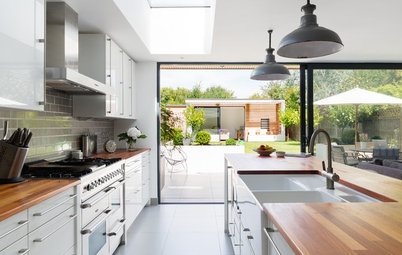
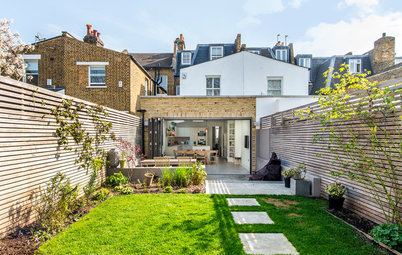
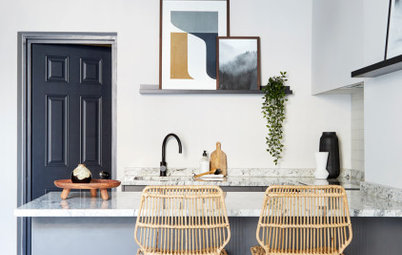
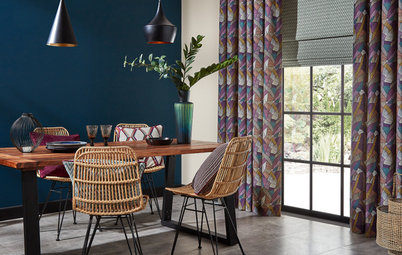
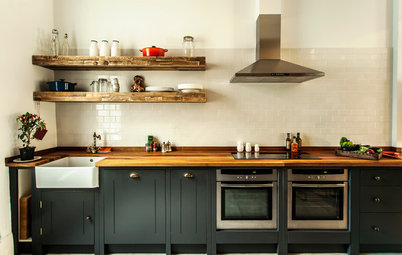
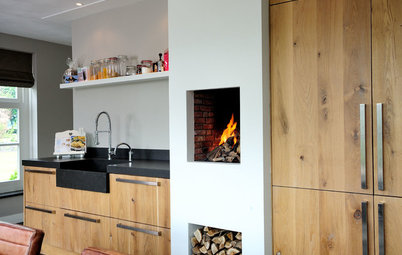
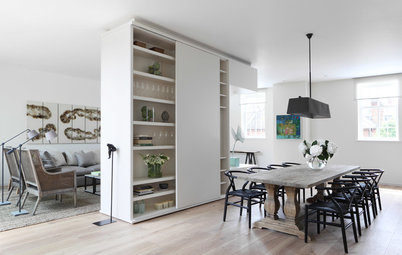

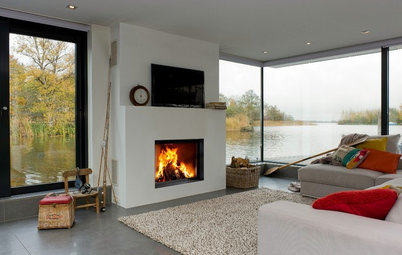
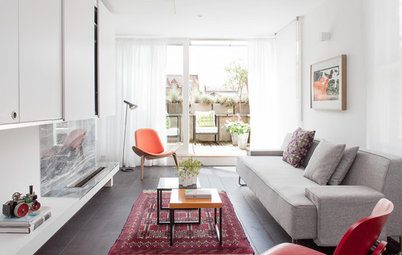
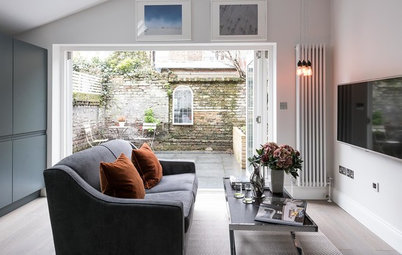
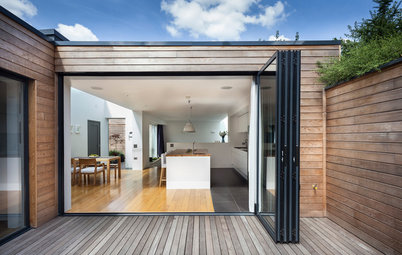


There are several reasons why you might want to upgrade your boiler. You may be considering it in order to reduce bills; because the boiler has failed; to take advantage of a scheme or incentive, or for sustainability, Kit Knowles says. “If it’s critical failure – your boiler has broken and you need a replacement fast – you’re probably going to go for a modern combi boiler,” he says.
How much might a new boiler cost? “If it’s a straightforward combi for combi swap, a rough guide would be between £2,000 and £3,000 including installation,” Paul Honeyman says.